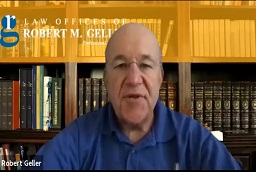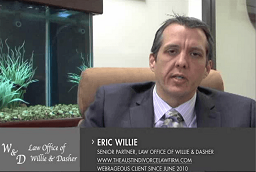Does your law firm use Google Ads?
Have you fiddled around with Dynamic Keyword Insertion but are unsure of its full potential?
You’re not alone. Dynamic Keyword Insertion or DKI is a powerful Google Ads feature that enables you to create text ads that update themselves to match a person’s search query.

(Pixabay / Wokandapix)
But why would someone want to do that and not use static text in their campaigns?
This post will give you a complete overview of DKI to help you answer this question and more.
Table of Contents
What Is Dynamic Keyword Insertion?
DKI is a Google Ads feature that prompts your ad to match a person’s search query.
Its aim is to ensure the text of your ad is hyper-relevant to what a user is looking for.
More relevant ads can result in better CTRs (click-through rate) and higher Quality Scores.

Need Google Ads Management Help?
Free Google Ads account review for
qualified clients
Almost 20 years experience
Plus, they can pave the way for more conversions by meeting the expectations of online searchers.
Some advertisers consider DKI to be an advanced feature because it requires you to add a small piece of code into the ad text, but don’t let that scare you off.
The code basically involves writing the search term after “Keyword:” (that’s Keyword and a colon) and putting a text string between { } (brackets).
For example: Utah Bankruptcy {Keyword:Attorney}
Let’s assume you’re running a Google Ads campaign to advertise your law firm and you’ve created an ad group that promotes your bankruptcy filing services. When you use DKI, the Ads platform will dynamically insert the phrase “Attorney” instead of a keyword that’s closest to what the user searched for to trigger the ad (at the ad group level). Boost your practice’s criminal defense marketing by integrating traditional and contemporary marketing strategies and ethical legal practices.
In this case, if a user searches for “Utah Personal Injury Lawyer,” they may see an ad that says “Utah Personal Injury Attorney.”
Be Mindful of the Character Limit for Headlines
It’s worth mentioning that DKI only works if what a person is searching for fits into the headline space (i.e., the search query is no longer than 25 characters).
If what they’re searching for exceeds the character limit, the Ads platform might display the original text you had within the brackets.
In our case, if someone searches for “find a lawyer in Utah for slip and fall injury,” Google Ads may just display “Utah Personal Injury Lawyer” as the headline, as the search term is too long to trigger a Dynamic Keyword Insertion.
What’s Wrong with Dynamic Keyword Insertion?
There’s nothing wrong with the idea behind this nifty little feature. However, there are some scenarios where DKI can negatively affect the performance of your Google Ads campaign. Here’s when you should avoid using it:
- You have broad match keywordsThe aim of Dynamic Keyword Insertion is to display ad text that’s hyper-relevant to a user.
Broad Match keyword type, however, tells search engines to present ads for several variations of the keywords in your Ads account, including singular/plural, related searches, and more.So, if you’re using DKI together with broad match keywords, your ads can end up looking weird and irrelevant. - You’re targeting misspellings or poorly worded phrasesAvoid applying Dynamic Keyword Insertion in campaigns where you’re bidding on misspellings or misworded phrases. The Ads platform accommodates misspelled phrases, but can’t display ads with the same.For example, say there’s a keyword in your ad group that is “Utah Bankruptcy Attorney.” The phrase “Utah Bankrupt Attorney” won’t blend well with DKI. If the DKI insertion is “Utah Bankrupt {Keyword:Lawyer}”, your ad may show as “Utah Bankrupt Lawyer” and won’t make sense.Make sure to test your results so that you can avoid embarrassments and instances like these.
Pro tip: Use care to enter your DKI code correctly. Proofread to ensure there’s no incorrect use of capitalization, extra spaces, or parentheses instead of brackets. Mistakes like these can make your ads look amateurish and turn prospects away.
- You have several long-tail keywordsDKI and long-tail keywords make for a confusing story.That’s because long-tail keywords are usually too long to fit within the 25 character limit of an ad.
- You’re targeting competitor termsThe last thing you want is competitor terms popping up in your ads. In an industry as sensitive as legal services, putting a competitor’s brand, name, or trademarked service can get you into trouble.While Google allows you to bid on competing search terms, adding their name to your ad is a surefire way to land your firm in hot water.As such, if you have ad groups with competitor terms as keywords, avoid using Dynamic Keyword Insertion for that campaign.
Other Things to Know
- Google has Rules for CapitalizationAn important thing to keep in mind when using DKI is capitalizations. The Ads platform has guidelines on what kinds of capitalizations can be used.Although using capital letters for something like “PS” might be allowed in DKI, all-caps for words like “DONUT” or “DISCOUNT” will most likely will be disapproved and flagged for removal.
- Tightly Themed Ad Groups Work BestDKI makes your ads more relevant to a searcher’s experience, but you can further improve this by using relevant keywords in your ad groups.For example, you might have “personal injury lawyer,” “personal injury attorney”, and “personal injury law firm” in an ad group, but having “divorce lawyer” might not make a lot of sense. Unless you’re a law firm offering all kinds of services and your Ads description is covering all of them, it’s best to create closely-themed ad groups.By ensuring that your keywords are closely related, and your ad groups are tight, you’ll achieve relevancy with your ads. Having a well thought of criminal defense attorney advertising campaign will deliver the business leads that will sustain your in the long run.
- Landing Pages Are ImportantDKI isn’t limited to PPC platforms like Google Ads. It’s also useful when it comes to your landing pages.To help convert clicks into customers, having a landing page that aligns with the ad copy will work better than pages that don’t have anything to do with what a searcher sees in the ad.Generally speaking, the more relevant you can make the ad-to-landing page experience, the higher the chance that you’ll convert a searcher into a customer, and DKI can be a powerful tool to achieve just that. A good criminal defense attorney advertising system relies on a keen knowledge of your target market and market.
If you’re unsure if you have the knowledge and skills to use DKI correctly, contact a PPC specialist at Webrageous. We specialize in Google Ads management for law firms and have the knowledge and experience to tell you if you’re using Dynamic Keyword Insertion correctly. You can also delegate your DKI to our experts by requesting that we handle your campaigns altogether. Ask about our proven track record and how we can work wonders for your ROI.



















